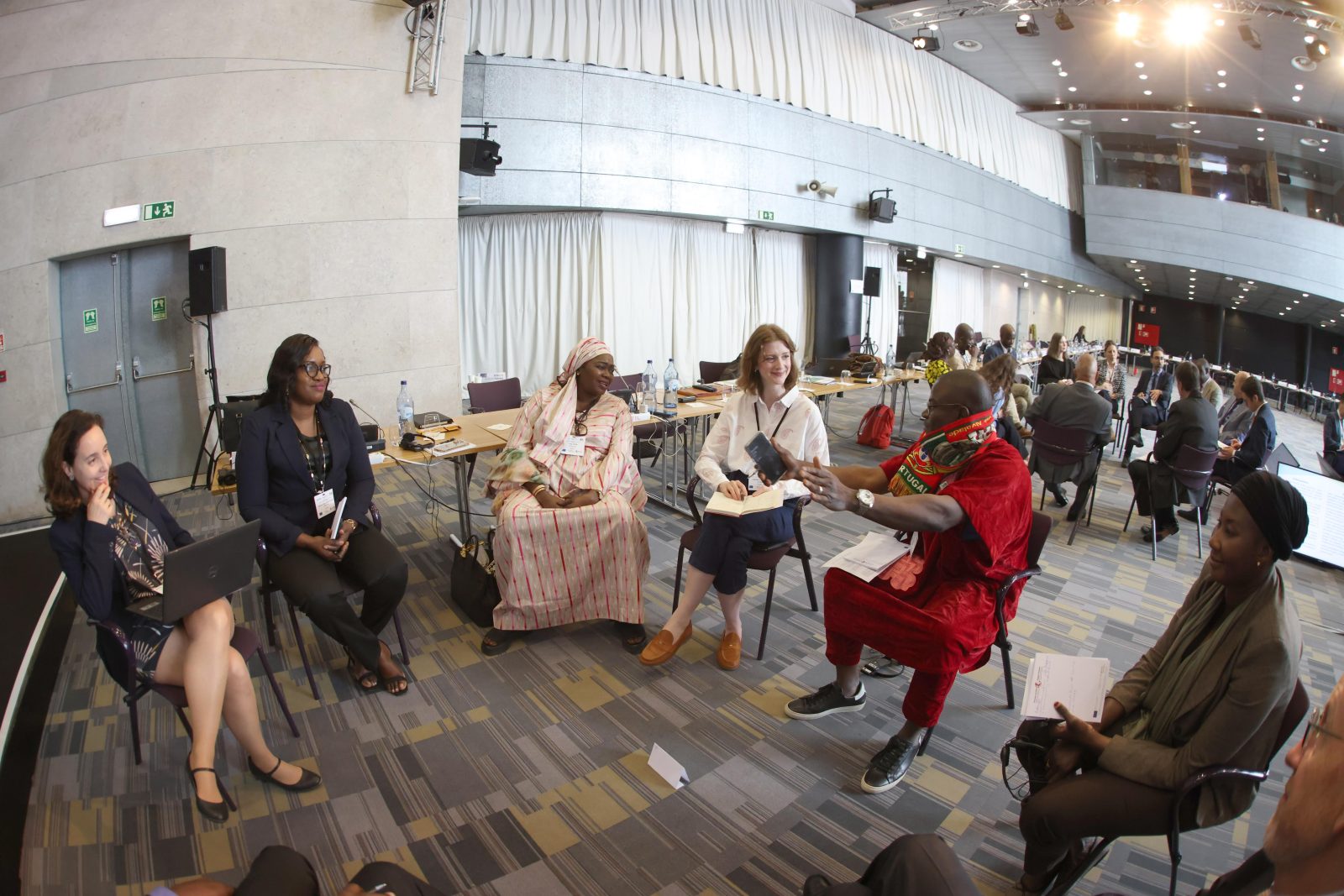
On 15-16 May 2024 the Rabat Process, which is the Euro-African Dialogue on Migration and Development, hosted a thematic meeting on “Promoting the positive effects of regular migration for sustainable development: the role of entrepreneurship and diaspora engagement.” EUDiF’s Charlotte Griffiths joined the event as a moderator. Here she shares her takeaways from the discussions on stage and in the coffee breaks.
Diaspora engagement demonstrates the strong bonds between Europe and Africa in human form and brings great value for both continents. The Rabat Process discusses a wide range of topics within migration and development and diaspora engagement is a regular feature, but a dedicated thematic meeting on the intersections between diaspora engagement and entrepreneurship and their respective and combined potential for development provides great opportunity to share practices and priorities in this ever-changing landscape.
At EUDiF we live and breathe diaspora engagement, whilst it is just one of many elements for national governments when it comes to migration and development. The conversations during the panels, working groups and coffee breaks therefore ranged from the high-level principles behind policies to the nitty-gritty of specific programmes, from national government strategies to grassroots diaspora-led work.
Looking ahead on Africa-Europe diaspora engagement
Dialogues like this provide an excellent moment to touch base on policies, practices and lessons learned, and to exchange beyond national government-diaspora channels. Thinking about the future of Africa-Europe diaspora engagement, three things stood out to me:
Firstly, there is a need to blend national strategies with the regional approach promoted by the African Union. This is particularly relevant when thinking of second and subsequent generations in the diaspora where Pan-African identities are increasingly strong, something which impacts how diasporas act as investors, entrepreneurs and in many other roles. Notably, Pan-Africanism is at the heart of the AU Diaspora Youth Initiative.
Secondly, we must acknowledge the reality that policymaking and programming move more slowly than diaspora and entrepreneur-led initiatives, which are constantly adapting and responding to changing needs and contexts. In policy we should focus on the principles and infrastructure to create the enabling environments at both ends of the diaspora “bridge”. Here, the role of countries of destination in the EU is essential but less well understood than that of the country of heritage, a gap which MPI has started to fill.
Lastly, diaspora engagement and entrepreneurship present many ways to build relationships between nations and continents, with diaspora acting as ambassadors of multiple places (they are often local, regional and national ambassadors in both heritage and destination country) in business, social and political spheres. Celebrating this reality could be the key to the paradigm shift needed to counter the little-challenged misconceptions about migration which persist in much national and international discourse.
Walking the talk
Portugal and Senegal, the Co-Chairs of the Rabat Process meeting had put diaspora engagement and entrepreneurship on the agenda, demonstrating shared inter-regional understanding of the huge potential for sustainable development. They ended the meeting calling for participants to take the discussions back to their national governments and encourage further action to make the most of this potential.
On EUDiF’s side, we look ahead to the project’s second phase, which will include support for governments and diaspora organisations alike. Entrepreneurship will likely continue to be a growth area for both stakeholders and holds great promise for its wide-ranging development potential and sustainability because, as Ashoka’s Diaspora Partnerships Manager Iveren Ityoikaa put it, “Entrepreneurship creates value out of problems.”
With thanks to the Rabat Process Co-Chairs and Secretariat for the invitation to participate in the event and further thanks to the panelists for an engaging exchange: Jason Gagnon – OECD Development Centre, Iveren Ityoikaa – Ashoka, Ravenna Sohst – Migration Policy Institute, Oula Tarssim – GIZ.
Interested to know more about diaspora engagement and entrepreneurship? Search the practice database for examples from around the world.